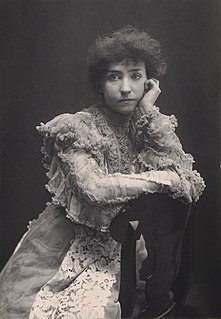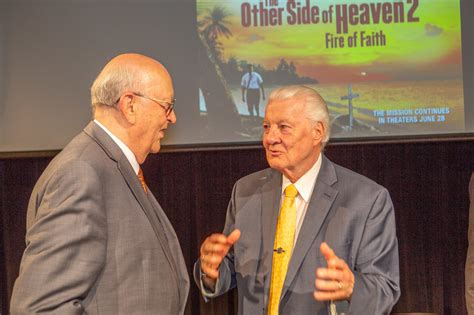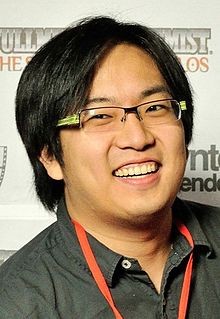A Quote by Sam Levinson
As a child I'm sure I was no different from any other human being struggling to navigate the difficulties and complexities of their childhood and adolescent years. I feel it's a time when all of us need an escape, a place where we can leave the world behind and just disappear. For me, it was film.
Related Quotes
Seeing yourself reflected on screen is a very important part of being human. It makes us feel less alone, it make us feel more connected to humanity. Women, gay men, and trans people for a long time have not seen themselves represented, so being able to show the complexities that we all have - just as complex stories as a heterosexual white male - is crucial for us to feel more human and have other people see us as human beings.
It is in the irony of things that the theatre should be the most dangerous place for the actor. But, then, after all, the world is the worst possible place, the most corrupting place, for the human soul. And just as there is no escape from the world, which follows us into the very heart of the desert, so the actor cannot escape the theatre. And the actor who is a dreamer need not. All of us can only strive to remain uncontaminated. In the world we must be unworldly, in the theatre the actor must be untheatrical.
We can leave a place behind, or we can stay in that place and leave our selfishness (often expressed in feeling sorry for ourselves) behind. If we leave a place and take our selfishness with us, the cycle of problems starts all over again no matter where we go. But if we leave our selfishness behind, no matter where we are, things start to improve.
I find myself drawn to that period where children are about to leave childhood behind. When you're 12 years old, you still have one foot in childhood; the other is poised to enter a completely new stage of life. Your innocent understanding of the world moves towards something messier and more complicated, and once it does you can never go back.
Just take the negro child. Take the white child. The white child, although it has not committed any of the per - as a person has not committed any of the deeds that has produced the plight that the negro finds himself in, is he guiltless? The only way you can determine that is, take the negro child who's only four-years-old. Can he escape, though he's only four years old, can he escape the stigma of discrimination and segregation? He's only four-years-old.
We think that play and fairytales belong to childhood - how shortsighted that is! As though we would want at any time in our life to live without play and fairytales! We give these things other names, to be sure, and feel differently about them, but precisely this is the evidence that they are the same things, for the child too regards play as his work and fairy tales as his truth. The brevity of life ought to preserve us from a pedantic division of life into different stages - as though each brought something new.
One of our continuing myths was summed up in Huckleberry Finn: Our escape, what we think of as our escape, is that we can always light out for the territories. Well, we really can't, not anymore, but that's part of the American character - that belief that at any moment, I could just drop the coffee cup and disappear. And it makes for a different self-image and a different story, in a way.
I do not intend to spare myself, not to avoid emotions or difficulties. I don't care much whether I live a longer or shorter time... the world concerns me only in so far as I feel a certain debt toward it, because I have walked on this earth for thirty years, and out of gratitude I want to leave some souvenir.
I feel like we cheated... because you read about these other directors, just like, 'Damn! They paid dues for 10 years before they got to get behind the camera.' We cheated because technology was in the right place at the right time, and we were alive at the right age at the right time for us to take advantage of that.
The world concerns me only in so far as I have a certain debt and duty to it, because I have lived in it for thirty years and owe to it to leave behind some souvenir in the shape of drawings and paintings – not done to please any particular movement, but within which a genuine human sentiment is expressed.

































